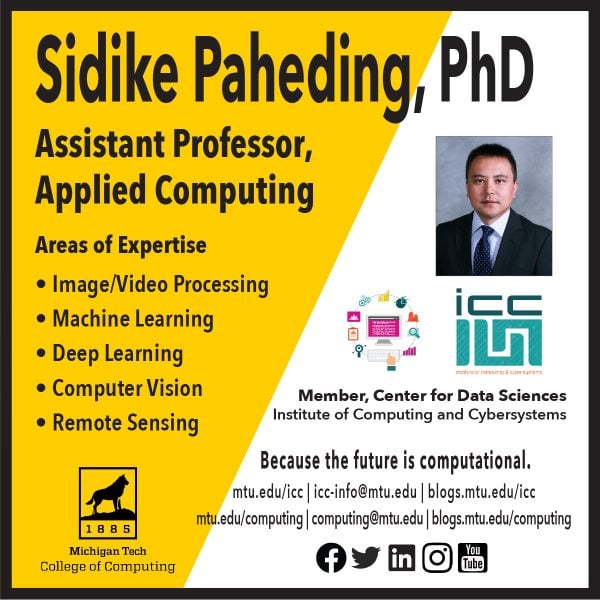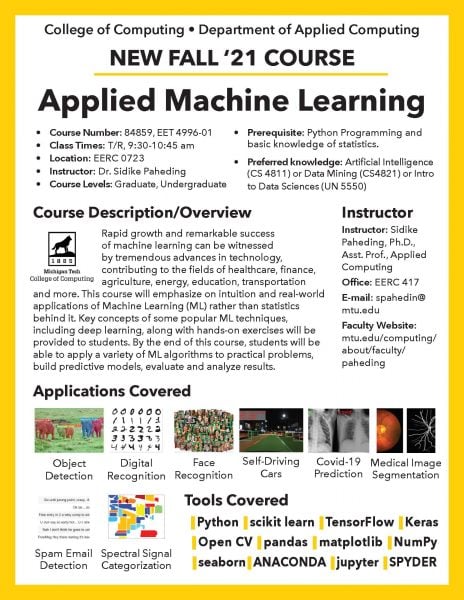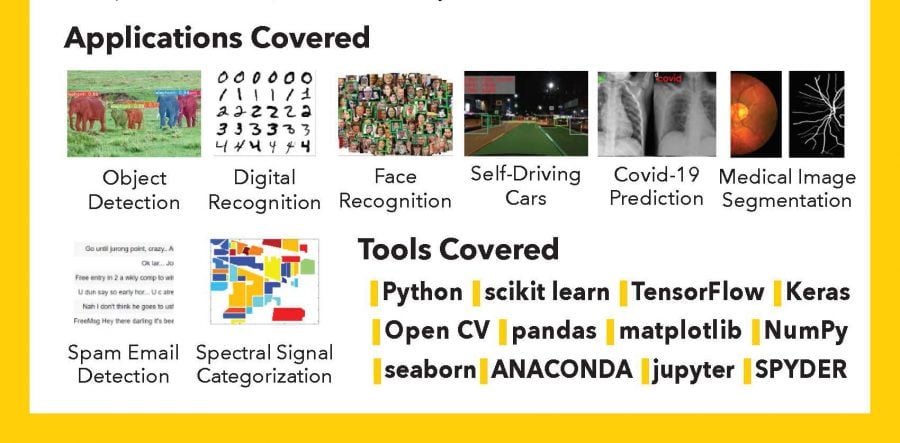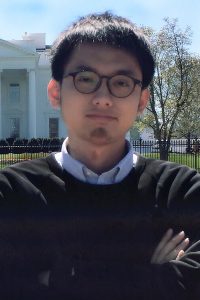
Sidike Paheding (AC/ICC) is the principal investigator on a project that has received a $19,037 research and development grant from Purdue University. The two-year project is titled, “Cybersecurity Modules Aligned with Undergraduate Computer Science and Engineering Curricula.”
The project aims to serve the national interest by improving how cybersecurity concepts are taught in undergraduate computing curricula.
The grant is a sub-award of a $159,417 Purdue University NSF project . View that project here.
Abstract
This project aims to serve the national interest by improving how cybersecurity concepts are taught in undergraduate computing curricula. The need to design and maintain cyber-secure computing systems is increasingly important. As a result, the future technology workforce must be trained to have a security mindset, so that they consider cybersecurity during rather than after system design. This project aims to achieve this goal by building plug-and-play, hands-on cybersecurity modules for core courses in Computer Engineering, and Computer Science and Engineering. The modules will align with the curricula recommended by the Association for Computing Machinery and will be designed for easy adoption into computing programs nationwide. Modules will be designed for integration into both introductory and advanced courses, thus helping students develop in-depth understanding of cybersecurity as they progress through their computing curriculum. It is expected that the project will encourage more students to pursue careers or higher degrees in the field of cybersecurity.
The project will examine how the modules may be best integrated into existing curricula and the effects of the modules on student learning and interest in cybersecurity. Assessment will leverage several methods including (a) a task load index to quantify rigor, (b) surveys to gain insight into the development of students’ security mindset and perceptions of cybersecurity, and (c) analysis of learning using analytical course rubrics. Deliverables of this project will include a suite of plug-and-play cybersecurity modules for Computer Engineering and Computer Science and Engineering courses that span from introductory to advanced levels and that meet standards for content breadth and depth. The results will be disseminated through publications, presentations, press releases, and social media to ensure that project outcomes are shared widely. The NSF Improving Undergraduate STEM Education: Education and Human Resources Program supports research and development projects to improve the effectiveness of STEM education for all students. Through the Engaged Student Learning track, the program supports the creation, exploration, and implementation of promising practices and tools.










